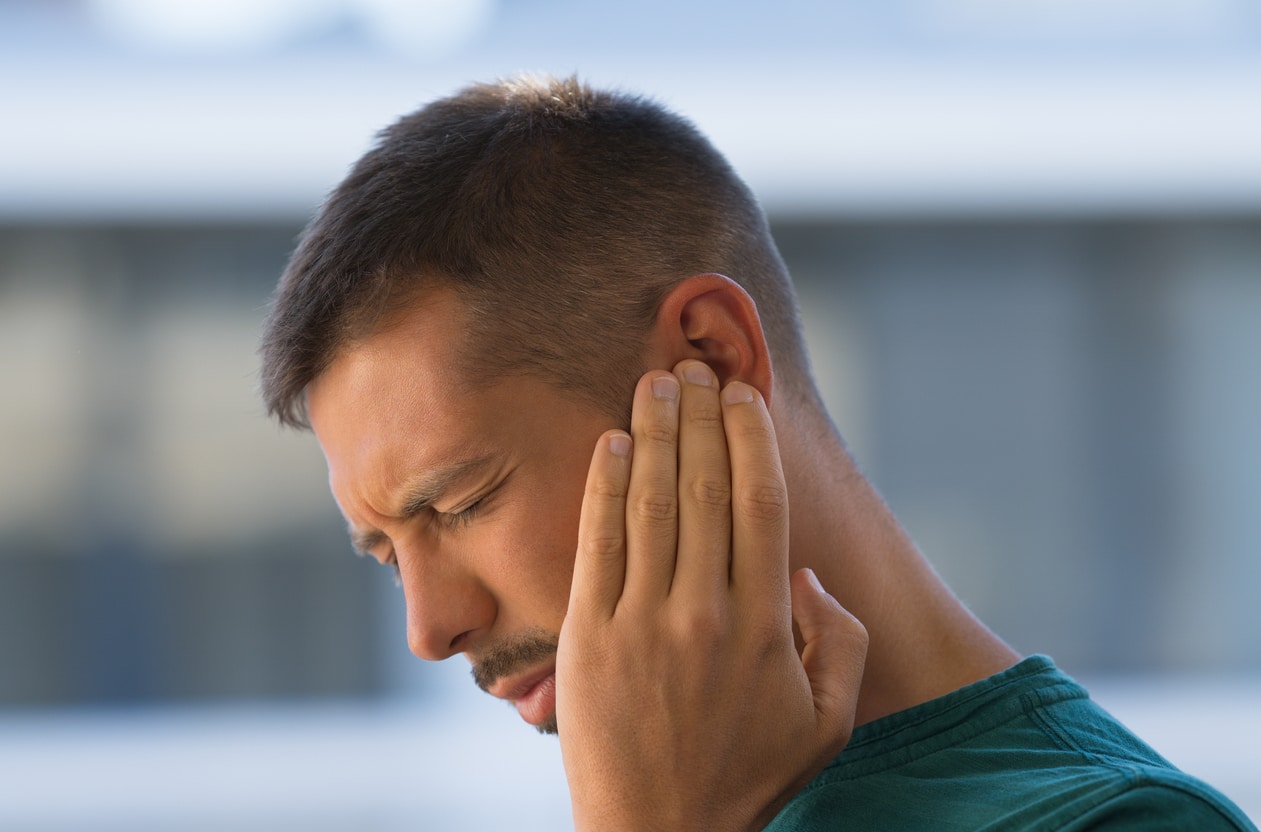Ear pain is a frequent concern across all age groups, often leading to a quest for finding both the cause and some relief. While it typically doesn’t indicate a serious health issue, recognizing why ear discomfort occurs can help to prevent future ear pain.
Understanding the Roots of Ear Pain

Earaches can arise from various sources, including:
- Infections: The most common culprit behind ear pain is middle ear infections, or otitis media, characterized by fluid build-up behind the eardrum, resulting in discomfort. Outer ear infections, known as otitis externa or Swimmer’s Ear, develop from bacterial growth due to moisture trapped in the ear.
- Sinus complications: Sinus issues and allergies can cause ear pain through congested and swollen nasal passages exerting pressure on the ear canal.
- Dental issues: Problems with teeth or the jaw can reflect as earaches due to the proximity of jaw nerves to the ear canal. Your doctor may refer you to a dentist in this event.
- Eustachian tube dysfunction: Blockage of the tube that links the ear to the throat can lead to discomfort and a feeling of fullness.
- Foreign objects: Especially common in children, items stuck in the ear can cause pain and potentially lead to infection.
- Air pressure changes: Fluctuations in air pressure during flying or high-altitude travel can result in ear pain, a condition termed barotrauma.
- Earwax build-up: While earwax serves a protective function, excessive accumulation can harden and block the ear canal, leading to pain and hearing issues.
- Improperly fitted hearing aids: Hearing aids that do not fit well can cause minor tears in the ear, potentially leading to infection.
Approaches to Treatment
Determining the root cause is essential for addressing ear pain effectively. For infections, a doctor will prescribe antibiotics for bacterial infections or other solutions for viral ones. Over-the-counter pain medications and warm compresses can alleviate discomfort, while decongestants may help with sinus-related pain.
Dentists can provide specific treatments for jaw-related issues. Actions such as yawning, chewing gum, or swallowing can assist in regulating ear pressure related to Eustachian tube problems or altitude changes.
Professional removal is recommended for significant earwax blockages, although over-the-counter drops from McMakin Pharmacy may help soften the wax. Medical professionals should address foreign objects in the ear for safe removal.
Should ear pain be severe, persist for an extended period, or be accompanied by symptoms like high fever, hearing loss or vertigo, seeking medical advice is crucial.
Although ear pain is common, it should not be ignored. By understanding its causes and treatment options, you can protect your hearing health. For further guidance or to consult with a doctor about ear discomfort, contact Southeast Texas Ear, Nose & Throat, LLP to schedule an appointment.